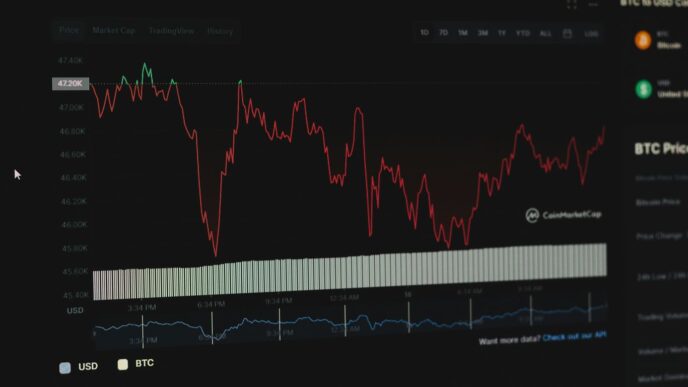The legal fight between Epic Games and Google has been a big deal, really shaking things up in the tech world. It’s all about whether Google plays fair with its app store and payment systems on Android. This whole situation has people talking about how powerful big tech companies are and what needs to change. We’re going to look at the main points of this epic games v google showdown.
Key Takeaways
- The epic games v google case is part of a larger global effort to check the power of major tech companies regarding their app stores and payment rules.
- A major point of argument was how to define the market – Epic said it was app distribution and payments, while Google had a broader view.
- Google’s Android system allows for third-party app stores and direct downloads, but it restricts developers from offering other payment options within apps, forcing them to use Google Play Billing.
- Epic argued that Google uses contracts and technical warnings to keep developers and users locked into its ecosystem, a claim Google disputes.
- The outcome of the epic games v google battle could significantly influence future rules for app stores and digital markets, impacting how tech giants operate and how competition is managed.
The Epic Games v Google Antitrust Landscape
This whole saga with Epic Games taking on Google is part of a much bigger, global pushback against the massive tech companies. It feels like everyone’s finally waking up to how much power these giants wield.
Global Antitrust Campaign Against Tech Giants
Epic’s fight isn’t just a solo mission; it’s like they’re leading a charge. They’re not the only ones questioning the way big tech operates, especially when it comes to app stores and how developers get paid. This global movement is pushing for fairer digital marketplaces. It’s a complex web of legal battles happening in different countries, each with its own rules and approaches.
The Australian Super-Trial and Its Ramifications
Australia recently had its own massive trial, a real marathon that went on for weeks. Think of it like a super-trial, where lawyers debated for ages about whether Google and Apple were playing fair with their app stores. The judge there, Jonathan Beach, has a huge task ahead of him to sort it all out. It’s not just about Australia, though; the decisions made there could ripple outwards. Google’s lawyers, for instance, used local examples to argue their case, trying to show that Epic could just set up shop elsewhere on Android, like putting a store inside another store. They even brought up arguments about how developers can still promote other payment methods outside the Play Store, which is an interesting point.
Europe’s Digital Markets Act Influence
Meanwhile, over in Europe, they’ve got this thing called the Digital Markets Act (DMA). It’s a new set of rules designed to make sure big tech companies play nicer and don’t hog all the power. This DMA is definitely casting a shadow over these antitrust cases, including the one in Australia. It means that some of the old arguments tech companies used to make about security and privacy might not hold as much water anymore. It’s like the goalposts have moved, and they have to find new ways to justify their practices. The DMA is a big deal because it’s a proactive step to regulate these platforms, rather than just reacting to problems after they happen. It’s a sign that governments worldwide are getting serious about curbing Big Tech’s overreach.
Defining the Battlefield: Market Definition in Epic Games v Google
So, what exactly were Epic and Google fighting over? It all comes down to how you define the market. This is a big deal in antitrust cases because it sets the stage for everything else. Epic basically said, ‘Look, the real fight is over app stores and how people pay for stuff inside apps on phones.’ They pointed to Android app distribution and in-app payment services as the key areas where Google has too much power.
Google, on the other hand, had a different idea. They argued that the market is much broader. They suggested that their services are about facilitating app transactions in general, and even brought up competition from PCs and game consoles. It’s like saying a local bakery is competing with a national supermarket chain – it’s a stretch, right?
Epic’s Contention on App Distribution and Payments
Epic’s main point was that Google controls the main way people get apps on Android phones – the Google Play Store – and also dictates how developers get paid for digital goods within those apps. They felt this gave Google a chokehold. Think about it: if you want to play a game on your Android phone and buy extra coins or features, you’re likely going through Google’s system. Epic argued this setup prevents fair competition and forces developers into Google’s terms.
Google’s Counterarguments on Market Scope
Google pushed back, saying that the Android world isn’t as locked down as Epic made it out to be. They pointed to the fact that Android allows for ‘sideloading’ – downloading apps from outside the official store – and that other app stores exist. They also tried to argue that they face competition from other platforms, like PCs and consoles, which is a bit like saying a corner store competes with Amazon. It’s a way to make their market share look smaller than it really is.
Jury’s Verdict on Android App Distribution and Billing
In the US case, the jury sided with Epic on this. They agreed that the relevant markets were indeed app distribution on Android smartphones and the services for handling in-app payments for digital items. This was a major win for Epic because it validated their view of where Google’s power lies. It means that, in the eyes of the jury, Google wasn’t just a player in a big, open market; it had significant control over specific, important parts of the Android ecosystem.
Google’s Android Ecosystem and Restrictive Contracts
Google’s Android is often talked about as an ‘open’ system, which sounds great, right? But when you dig into how it actually works, especially with the Play Store, things get a bit more complicated. Epic argued that Google uses a bunch of contracts and agreements to keep developers and manufacturers locked into its way of doing things, making it tough for anyone else to get a foothold.
Sideloading and Third-Party App Stores
One of the main points of contention is how Google handles apps that don’t come through the Play Store. While Android technically allows you to download apps from other places – what the tech folks call "sideloading" – Google makes it pretty difficult. When you try to sideload an app, you’re hit with a bunch of security warnings. Epic says these warnings are designed to scare users off, making them think twice about installing anything outside the official store. Google, on the other hand, downplays these warnings, saying they’re just standard security measures. It’s a classic case of whether these warnings are genuinely about user safety or a way to steer people back to the Play Store. This whole debate touches on how much control Google really has over the app distribution on its own operating system.
The Role of Google Play Billing
Even if developers manage to get their apps onto Android devices through other means, Google still has a way to keep a piece of the pie. The Play Store doesn’t let developers offer alternative payment methods for digital goods within their apps. This means if you buy something inside an app, like extra lives in a game or a subscription, you’re almost always going through Google Play Billing. Epic argued this is a major restriction, forcing developers to use Google’s payment system and pay its fees. Google’s stance is that this is necessary for managing the ecosystem and providing a consistent user experience. It’s a sticky situation for developers who want more flexibility and for users who might prefer other payment options. This is a key area where Google’s market position is being challenged.
Project Hug and Developer Agreements
Then there’s "Project Hug." This was an initiative where Google offered special perks to big developers to keep them using the Play Store. Think of it like Google giving some of its biggest customers special deals, like custom revenue-sharing agreements. Epic saw this as Google paying off developers to prevent them from leaving the Play Store, especially worrying about the "contagion risk" – if big developers left, others might follow. Google countered that Project Hug was just normal business, showing they compete on price and quality. They argued it wasn’t about making ‘sweet’ deals to keep developers, but rather a sign of a healthy, competitive market. These kinds of agreements are a big part of what Epic claims creates a restrictive environment on Android.
Security Justifications vs. Competition Concerns
So, Google and Epic are going at it, and a big part of the argument boils down to security. Google, like Apple in similar situations, claims its strict rules are all about keeping users safe. They say letting just anyone put apps on their phones, or letting developers use their own payment systems, opens the door to all sorts of bad stuff – malware, scams, you name it. It’s the classic ‘walled garden’ defense, right? They argue that their control over the app store and payments is necessary to maintain a secure and reliable experience for everyone.
Apple’s Security Claims in Parallel Cases
Apple has made similar arguments in other legal fights. They’ve told courts that their tight grip on the iOS ecosystem is what protects people’s private information and keeps their devices free from viruses. It’s a story they’ve stuck to, saying that user safety isn’t just a nice-to-have, it’s the core of their business model. They believe that if they loosen up too much, the whole system could become unstable. This focus on security is presented as a shield against competition, not a tool to stifle it.
Epic’s Argument on Technical Deterrents
Epic, however, pushes back hard on these security claims. They point to things like Europe’s Digital Markets Act (DMA) as proof that alternative systems can work. Epic’s lawyers argued that the security measures Apple put in place in Europe, which allow for third-party app stores and alternative payment options, show that it’s technically possible to have a more open system without completely sacrificing user safety. They suggested that Apple’s global security tech could be adapted, even if Apple claimed the user experience might be ‘compromised’. Epic sees these security arguments as roadblocks, technical excuses to avoid real competition.
The ‘Walled Garden’ Debate
The whole ‘walled garden’ concept is central here. Google and Apple want you to believe their gardens are fortresses, essential for your protection. But Epic argues that these walls are built more to keep competitors out than to keep users safe. They question whether the security benefits are truly as significant as claimed, or if they’re just a convenient justification for maintaining a monopoly. It’s a tough debate because security is important, but so is having choices and fair competition. The question becomes: when does a company’s concern for security cross the line into anti-competitive behavior? It’s a tricky balance, and the courts are trying to figure out where that line is drawn, especially when you consider that Epic Games initiated an antitrust lawsuit against Google after Fortnite was removed from the Play Store.
Epic’s ‘Hot Fix’ Strategy and Legal Implications
The Undisclosed Code in App Store Versions
So, Epic Games did something a bit sneaky with Fortnite on the app stores. Back in August 2020, they put a hidden bit of code, a ‘hot fix’ as they called it, into the version of Fortnite available on Apple’s App Store. This code let players use Epic’s own payment system, bypassing Apple’s usual process. Then, just a few months later, in September 2020, they did the same thing for the Google Play Store version. It felt like a deliberate move to poke the bear, you know?
Accusations of Deception and Intent
Naturally, both Apple and Google weren’t happy. Their lawyers basically said Epic was trying to trick them, setting up a situation to force a legal fight. Tim Sweeney, Epic’s CEO, admitted that his team knew the approach was ‘deceitful.’ But he also said their intention was good – they wanted to build a more direct connection with the people playing their games. It’s a classic ‘ends justify the means’ argument, I guess. Whether the judge sees it that way is the big question.
Potential Impact on Australian Tech Regulation
This whole ‘hot fix’ situation really put Epic’s actions under a microscope during the Australian trial. Since Epic wasn’t asking for money in Australia, the case felt more like a test run for how regulators might handle these kinds of disputes. If Epic wins, it could really push the Australian Competition & Consumer Commission to push for more rules about digital platforms. On the flip side, if Google and Apple win, it could make it a lot harder to challenge their dominance in the future. It’s a big deal for how tech companies operate down under.
Broader Implications of the Epic Games v Google Battle
This whole Epic Games versus Google showdown is way bigger than just one game or one app store. It’s really shaking things up for how big tech companies operate and how we think about competition online.
Reckoning for Big Tech Dominance
For years, companies like Google have built massive digital empires, often with app stores and payment systems that feel like the only game in town. Epic’s fight, especially in Australia, is pushing back hard against that. It’s like they’re saying, "Hey, you can’t just lock everything down and expect no one to question it." The Australian trial, in particular, has put a spotlight on Google’s contracts with developers. Things like "Project Hug," where Google gave perks to big developers to stick with the Play Store, are being scrutinized. Epic argues this was just a way to keep developers from leaving, not genuine competition. This case could set a precedent for how these kinds of deals are viewed in the future.
User Awareness and Advocacy’s Role
What’s interesting is how this battle has also made regular people think more about how app stores work. When Epic tried to offer its own payment system in Fortnite, and Google put up those warnings about downloading apps from outside the Play Store, it made users wonder why things are set up that way. It’s not just about developers anymore; it’s about user choice and how platforms influence what we can and can’t do. This increased awareness is a win in itself, as it fuels more conversations and potentially more demand for fairer practices.
Shaping Future Antitrust Enforcement
This whole saga is a major test for antitrust laws in the digital age. Regulators around the world are watching closely. Europe’s Digital Markets Act (DMA) is already changing the game over there, forcing platforms to be more open. The Australian case, even though it’s a bit different, is happening in the shadow of that. If Epic wins in Australia, it could really encourage other regulators, like the Australian Competition & Consumer Commission, to push for stronger rules. It’s like a domino effect. The way judges and juries decide these cases, especially on things like market definition and whether security concerns are a valid excuse for limiting competition, will guide how future antitrust cases against tech giants are handled. It’s a complex legal puzzle, and the outcome here will have ripple effects for a long time.
What’s Next in the App Store Wars?
So, after all that legal back-and-forth, what’s the big takeaway? It’s clear that the fight over app stores isn’t over, not by a long shot. Epic Games has really pushed the big tech companies, forcing them to defend how they run things. Whether it’s in Australia, Europe, or here in the US, these cases are making everyone look closer at whether the rules are fair for developers and users alike. We’re seeing new laws pop up and more scrutiny from governments. It feels like a real turning point, and the decisions made now will shape how we download apps and make purchases online for years to come. It’s going to be interesting to see how it all shakes out.
Frequently Asked Questions
What is the big fight between Epic Games and Google about?
Epic Games, the company that made Fortnite, thinks Google has too much power over its Android app store. They argue that Google makes it hard for other app stores and payment methods to exist, forcing developers to use Google’s system and pay fees. It’s like saying one store gets to decide all the rules for everyone selling things in their mall.
Why is this case happening in Australia?
Epic is fighting these kinds of battles all over the world. The Australian case is one part of that. Even though Europe has new rules for big tech companies, the Australian judge has to look at the specific situation there to decide if Google broke any competition laws.
What does ‘market definition’ mean in this case?
This is about what business area we’re talking about. Epic says the fight is about selling apps and taking payments for digital stuff on phones. Google disagrees and says it’s a bigger market that includes other ways people get apps. The court has to decide which view is correct to understand the competition issues.
Does Google allow other app stores on Android?
Yes, Android is more open than Apple’s system. You can download apps from places other than the main Google Play Store, which is called ‘sideloading.’ However, Epic argues that Google makes this difficult and warns users a lot, and also forces apps to use Google’s payment system if they are in the Play Store.
What is ‘Project Hug’?
Project Hug was a program where Google gave special deals to some big app companies to keep them using the Google Play Store. Epic believes this was Google’s way of preventing these companies from leaving and showing others that it’s risky to go elsewhere. Google says it was just competing fairly.
What could happen if Epic wins?
If Epic wins, it could mean big changes for how app stores operate. It might make it easier for other app stores and payment systems to compete with Google and Apple. It also shows that big tech companies might face more rules and challenges to their power in the future, which could affect how they do business globally.












